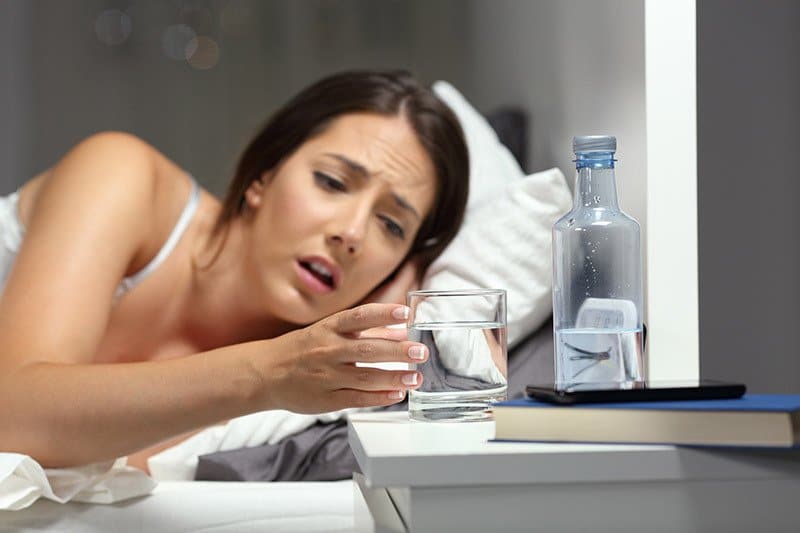Everyone loves spending more time outdoors in the summer whether you’re taking a vacation at the beach, spending a few hours at a nearby pool, or just enjoying the longer hours of daylight and a more relaxed schedule. Previous blogs have discussed potential concerns related to sun exposure and heat-related illness; this blog will discuss dehydration.
What causes dehydration?
Dehydration occurs any time that your body loses more fluid than you replenish – either through drinking or food. Because the most common cause of dehydration is excessive sweating, dehydration often occurs in the summer when our bodies typically sweat more to help us keep cool but can occur anytime you are losing more fluid than you are replacing or simply not drinking enough.
When too much water is lost from the body, the organs, tissues, and cells fail to function properly, which can lead to dangerous complications. The body may also lose crucial electrolytes which are vital to organ and muscle processes.
Who is at risk for dehydration?
While dehydration can happen to anyone, certain groups of people are at higher risk.
- Older adults may become dehydrated for a variety of reasons, including those above, but also simply because aging causes some people to lose their sense of thirst. Older adults may also find it more difficult to use the restroom due to physical limitations so they “drink less so they pee less.”
- Infants and young children because they are more prone to diarrhea or vomiting and not always able to satisfy their own thirst.
- People with chronic illnesses which cause increased frequency of urination or increased sweating (such as diabetes, cystic fibrosis, or kidney problems).
- People who exercise heavily or work outdoors (welders, landscapers, roofers, construction workers, etc.) during hot weather. Athletes – especially runners, soccer players, cyclists, bodybuilders, and even swimmers – are prone to dehydration.
What are the symptoms of dehydration?
Symptoms are somewhat different for different age groups. Dehydration can be mild, or severe enough to be life-threatening.
In adults, they include:
- Feeling extremely thirsty
- Dry mouth and/or skin
- Urinating and sweating less than usual
- Urine which is very dark in color
- Feeling tired and dizzy
- Headache
In infants and young children, they include:
- Dry mouth and tongue
- Crying without tears
- No wet diapers for 3 hours or more
- Irritability and/or being extremely sleepy
- Eyes that appear “sunken”
In cases of severe dehydration, there may also be symptoms including confusion, fainting, rapid heart rate and breathing, lack of urination, and even shock. If these symptoms occur, seek medical help immediately.
What is the treatment for dehydration, and can it be prevented?
In most cases, dehydration can absolutely be prevented. Make sure that you get enough fluids, especially if you are at high risk (see categories above). Here are a few tips to help:
- Drink enough water every day. The suggested amount is 8-10 glasses (at least 8 ounces each) per day for the “average” person who is moderately active. Athletes, people working outdoors, and those who are more active should drink more.
- Avoid drinks with sugar and caffeine.
- Drink extra fluids when you are sick, especially when vomiting or you have diarrhea. (Remember the adage, “Rest and drink plenty of fluids”?)
- Drink extra fluids when the weather is hot.
- When exercising or playing sports, replenish fluids at regular intervals during workouts.
If you do become dehydrated, replace the fluids and electrolytes you have lost. In most cases, just drinking more water will help; sports drinks such as Gatorade can help replace lost electrolytes. Severe dehydration may require treatment with intravenous (IV) fluids. Children and seniors should seek treatment immediately, even for signs of mild dehydration.
For more information see our blog, Heat-related Illnesses in our First Aid Handbook. Call or contact any of the eight convenient Integrity Urgent Care locations with experienced staff who can provide treatment or answer questions about dehydration. Walk-ins are always welcome!
Remember, enjoy the great outdoors during the long days of summer, but BE SAFE and protect your loved ones.
Resources:
Kahn A. What causes dehydration. Healthline.com [online]. Reviewed 3 Feb 2016 [accessed 24 Jul 2019]. https://www.healthline.com/symptom/dehydration
US National Library of Medicine. Dehydration. MedlinePlus.gov [online]. Last updated 29 May 2019 [accessed 24 Jul 2019]. https://medlineplus.gov/dehydration.html




